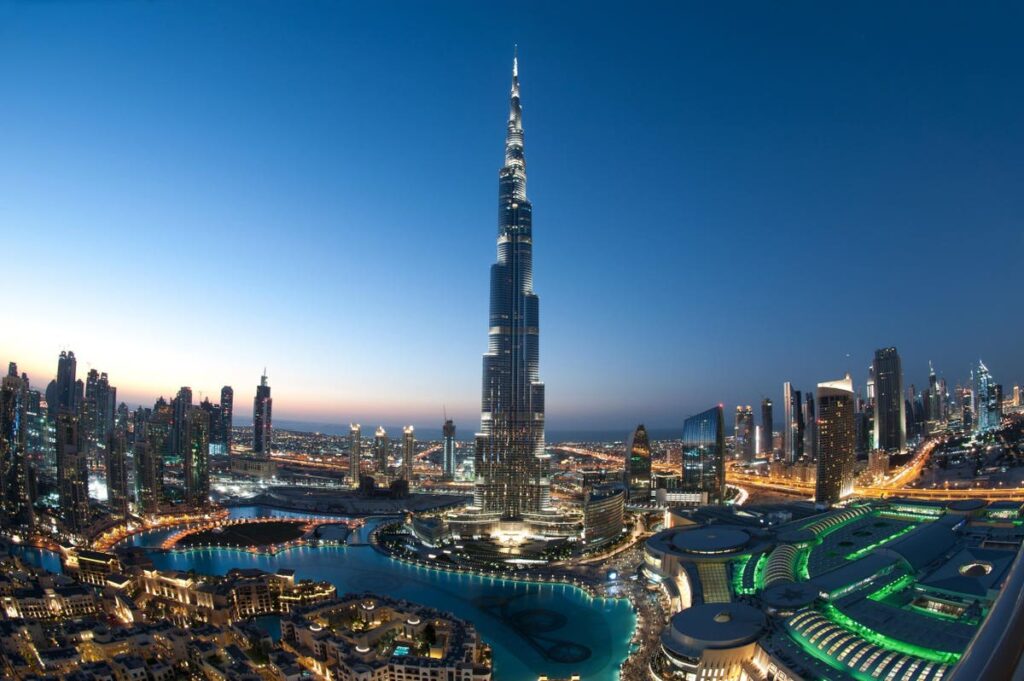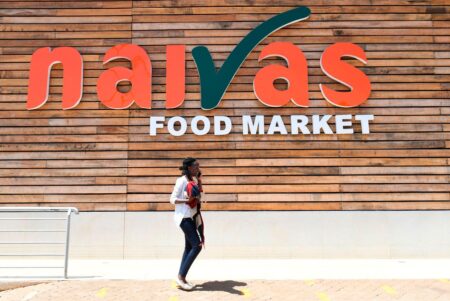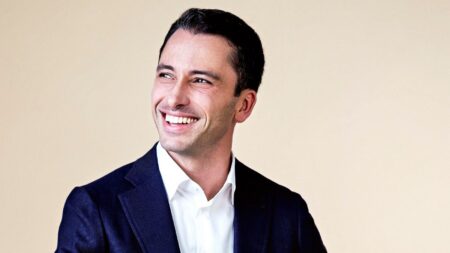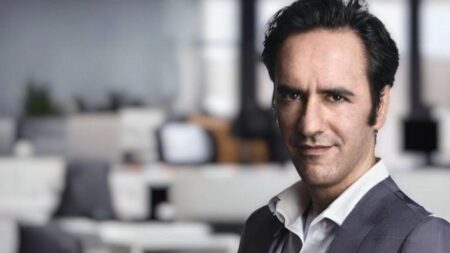In late May, Dubai’s Virtual Asset Regulator Authority (VARA) hosted some of the world’s most successful digital assets and Web3 companies to discuss Dubai’s bold new regulator strategy in hand with the city’s recently launched ‘D33’ – a 10-year economic agenda aimed at doubling the size of the economy in the coming decade, to position Dubai as a top global financial services and talent hub along New York, London, Hong Kong, and Singapore, and to bolster its other key sectors, including logistics, trade, manufacturing, and tourism,
VARA makes Dubai one of a handful of global jurisdictions implementing a mature framework for crypto and virtual assets. Henson Orser, CEO of VARA, says “The VARA framework expects to see several hundred virtual asset exchanges and service providers in Dubai start to come into its licensing regime in 2023.”
The European Union, with the Markets in Crypto Assets Regulation (MiCA), was entered in the Official European Journal in June and is now in its implementation phase into 2024 with discussions of Level 2 delegated acts with National Competent Authorities (NCAs) and ECB and ESMA. Paris has attracted several leading players like Coinbase, Crpto.com, and Binance for their European headquarters and Prime Minister Macron and Digital Minister Jean-Noel Barrot have taken to meeting global tech leaders in the Elysee.
Hong Kong is back in the game of competing for digital assets market share and launched a new crypto licensing regime on the first of June, a very welcome move to players in the region for 2023. Hong Kong’s banking regulator is pressuring financial institutions including HSBC and Standard Chartered to take on crypto exchanges as clients, in stark contrast to many jurisdictions, in a move that is seen as likely to accelerate licensing and growth in the region and is an about face to Beijing’s 2017 crypto ban, which had a chilling effect on the region’s buoyant crypto market.
The new U.K. crypto regime is set to launch in early 2024 and has put this global fintech hub on the map for digital assets. The U.K’s Financial Services and Markets Bill is winding its way through Parliament and will grant new powers to the regulator for international scope and growth. London is attracting new players like West Coast venture firm Andreesen Horowitz and with tech-savvy Stanford graduate Prime Minister Sunak, and digital champion Economic Secretary of the Treasury Andrew Griffiths, the U.K.’s fintech ecosystem has redisovered the spring in its step after years of government neglect.
VARA is another feather in Dubai’s bow focused purely on the virtual assets markets. The regime is proving attractive to many U.S. and foreign firms who see the regulatory clarity and certainly that Dubai offers as a commercial de-risking strategy, and frankly, a breath of fresh regulatory air.
With the U.S. Securities and Exchange Commission (SEC) recent litigation of crypto exchanges and the increasing politization of the digital innovation agenda in the U.S., many firms are seriously considering redomiciling their digital asset businesses. Dubai is one of a handful of top fintech hubs, along with London, Paris and Hong Kong vying to attract international companies focused on growing the digital economy.
Dubai’s Not So Secret Sauce
Dubai, as a proposition for innovate digital finance firms, is compelling: a GDP forecast for steady growth, a world-class fintech and financial services ecosystem, and a stable, progressive government and regulatory regime dedicated to strategic technologies like blockchain and artificial intelligence. Dubai is positioned as the gateway to more than four billion people in the Middle East, Africa and Asia, many, home to economies forecast to power global growth over the next millennia with more than half of the populations under the age of 30.
Dubai is the highest profile of the seven states making up the United Arab Emirates (UAE) and is leader in the “Falcon Economies”, a term coined in Abu Dhabi, the federal capital of the Emirates, to describe the positive growth story continuing to emerge in the greater region of the Gulf Cooperation Council (GCC) which includes Saudi Arabia, Qatar, and Kuwait.
With oil and gas resources underpinning much of the region’s wealth, although not the case in Dubai, the competition to attract foreign capital and talent is immense and has seen a lot of new investors in the region following COVID-19 and stubborn inflation in search of new sources of both capital and investment opportunities.
The ingredients in Dubai’s not so secret sauce are often seen by foreigners as the “soft factors” that make the quality of life a big draw for companies and their employees, namely, great: housing, schools, healthcare, and recreation, all in a temperate climate. With a stable government and a “can do” attitude towards technology, growth, and a progressive tax environment, Dubai might not have the natural resources of its regional cousins but has the “cool factor” and is seen as the place to be.
The Dubai International Finance Centre Authority (DIFC), a financial “free zone”, launched in 2004, with over 550 regulated financial institutions, 4,200 companies with over 36,000 employees in legal and professional services and is the largest fintech ecosystem in the Middle East and South Asia.
DIFC’s Dubai Financial Services (DFS) has a more progressive approach to digital innovation than many regulators when it comes to its focus of delivering stable growth to the region. Dubai is increasingly seen as a global financial hub competing with New York, London, Singapore, and Hong Kong as a launchpad for new digital businesses.
“The financial centre has been expanding five-fold faster than the Emirate’s average gross domestic product growth over the past 10 years, contributing about six per cent to its GDP,” said H.E. Essa Kazim, DIFC Governor, during his keynote address last month at the Dubai Fintech Summit, the largest summit to date with 5,000 industry professionals and delegates from over 50 countries attending, and noted that a key growth driver over the past three years has been fintech and innovation companies contributing over 27 percent to the centre’s overall client growth.
The region is increasingly seen as safe and certain onshore jurisdiction for the wealthy to domicile their money and has over 4,000 millionaires from the Middle East, India and Africa. Refinitiv estimates that there is almost $966 billion in private wealth in Dubai, putting traditional global wealth centres on notice that there is a new global home for protecting both old and new family and private wealth.
60 hedge funds with over $1 trillion of assets under management in Dubai is attracting new asset managers and hedge funds at a record pace who also seek the protections of common-law, the gold standard for international law and property rights and protections. It is also centered in the middle of the world’s major market time zones, a convenient factor for on-market trading.
“In this part of the world, liquidity is very, very flush, capital is available and economic growth is good,” Bill Winters, CEO of Standard Chartered told delegates at the Dubai FinTech Summit in May.
25 of the top 30 world’s strategically important banks and over 250 asset managers mean Dubai is well positioned for the emerging trends around the tokenization of the real economy and real world assets. Larry Fink, the CEO of Blackrock, the world’s largest asset manager, estimates the market for the (digital) tokenization of global real-world assets to be in excess of $290 trillion. Blackrock has just filed for a spot bitcoin ETF that would allow investors to get exposure to the cryptocurrency.
This is a trend that many in major global financial hubs are paying attention to and is helping Dubai to position for seismic shifts in new capital creation, access to capital, and greater cross-border mobility of money. Zodia, a new digital custodian owned by Standard Chartered, Northern Trust, and SBI has just set up shop in Dubai with plans to be the go-to for the safekeeping of virtual and digital assets.
The Last Mile
On the “last mile” in its bid to becoming a top global financial services hub, Dubai has some hurdles to overcome. The UAE is on the Financial Action Task Force (FATF) grey list “strategic deficiencies” in countering money laundering in the country and means the country has committed to swiftly resolve the identified strategic deficiencies within agreed timeframes and is subject to increased monitoring.
The Middle East and North Africa financial action task force, MENAFATF upgraded FATF recommendations 1, 19 and 29 to “compliant” or “largely compliant” in response to the steps taken.
“The UAE is working diligently to implement effective measures that ensure that we are fully compliant with the FATF’s 40 recommendations,” said Hamid Al Zaabi, director general of the executive office in a quote to the markets last month.
Another hurdle is the rising cost of real estate in Dubai following the COVID-19 population bump, which increased by over two percent to 3.55 million inhabitants. Dubai has experienced one of the most successful economic recoveries post the COVID-19 pandemic and the volume of properties sold recorded a 128 percent year-on-year increase.
Along with stubborn (global) inflation, it is becoming more expensive to set up shop in Dubai for entrepreneurs and their teams than it was a few years ago and could threatens to stifle fintech innovation, especially for firms on the early-stage funding ladder, yet property still remains lower than many other global cities in terms of comparative costs per square foot at roughly half the cost of New York or London.
In the last century, Dubai was a creek in the middle of the sandy desert home to a small fishing village. It was the vision of Sheikh Rashid bid Maktoum who understood the opportunity to build a trading hub for Qawasim merchants being kicked out of Persia in the late 19th century. He launched a plan to make Dubai the most business-friendly port in the lower Gulf, and the rest is history.
Today, Dubai is a global top tier port and its owner, DP World, owns 78 operating marine and inland terminals supported by over 50 related businesses in 40 countries across six. The real estate landscape has gone through a massive transformation over the years, from traditional houses and markets to modern infrastructure and luxury living accommodation that appeals to emigres and investors from all over the world.
Success breeds success, and this is probably the most notable story of Dubai’s century of economic and social transformation as it positions to capture the growth of this millennia. With competition for new global financial services hubs intensifying, historic global financial hubs are under increasing pressure. Dubai is positioning itself to lead the global hurdle race to become synonymous with New York, London, Hong Kong, and Singapore, through its leadership in innovation and digital finance.
Read the full article here













